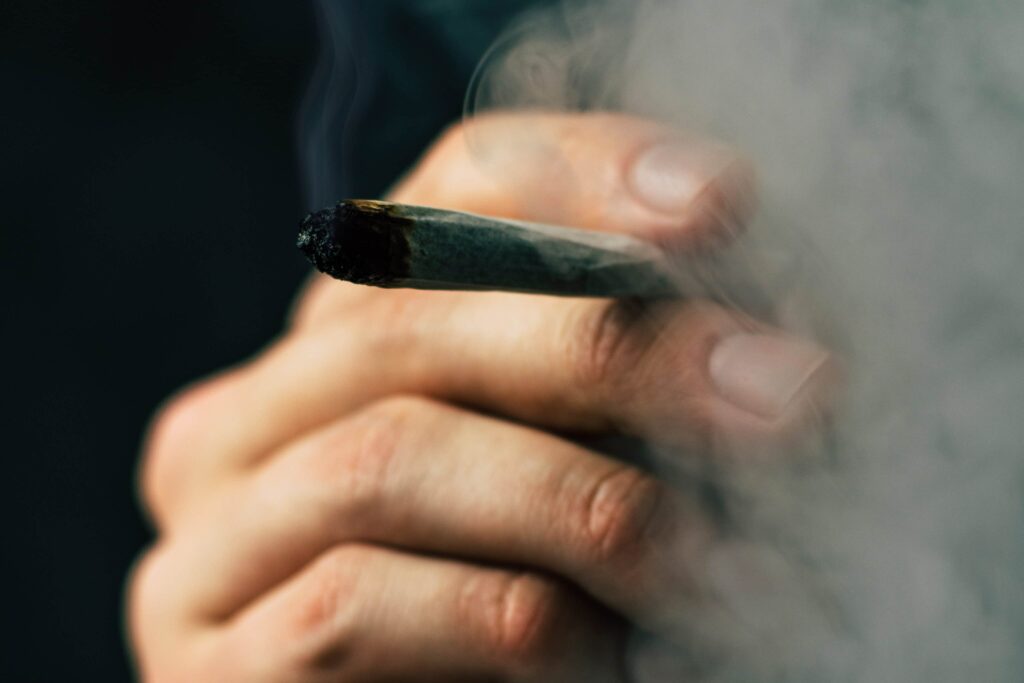
Amidst the growing cannabis reform across the West, there have been growing conversations surrounding cannabis-induced psychosis, suggesting that regular cannabis use and highly concentrated products may exacerbate mental health symptoms as access increases.
However, a recent study published in the International Journal of Drug Policy took a closer look at shifting cannabis policy following Canada’s cannabis legalization in October 2018, ultimately finding no association with legalization and increasing rates of cannabis-related psychosis.
The research suggests that, at least so far, changing cannabis legislation is not related to increasing cases of psychotic disorders, though researchers also cautioned that “a longer post-legalization observation period … is needed to fully understand the population-level impacts of non-medical cannabis legalization.”
No Association Between Psychotic Disorders and Cannabis Reform
The research highlights the concern that has made waves in recent years, with cannabis as a “risk factor in the onset and persistence of psychotic disorders” and the notion that recreational cannabis legalization could elevate these risks.
A team of Canadian researchers examined regional changes in health services use and incidences of psychotic disorders over the months immediately following cannabis legalization through a cross-sectional interrupted time-series analysis from January 2014 to March 2020.
Researchers examined psychosis-related outpatient visits, emergency department visits, hospitalizations and inpatient length of stay along with incident cases of psychotic disorders among people aged 14 to 60 years.
Ultimately, researchers did not find evidence of increase in health service use or incident cases of psychotic disorders over the short-term period, 17 months, following cannabis legalization. However, they noted “clear increasing trends in health service use and incident cases of substance-induced psychotic disorders” throughout the 2014-2020 observation window as a whole.
“Our findings suggest that the initial period of tight market restriction following legalization of non-medical cannabis was not associated with an increase in health service use or frequency of psychotic disorders,” authors concluded, stressing the need for a longer, post-legalization observation period to fully understand the population-level impacts of legalization and reform.
“Thus, it would be premature to conclude that the legalization of non-medical cannabis did not lead to increases in health service use and incident cases of psychotic disorder,” they state.
Further Proof That Legalization Does Not Increase Psychosis Instances
The study adds to a growing body of research similarly affirming that cannabis reform is not associated with significant changes surrounding cannabis-induced psychosis.
Another 2022 study looking at Canada’s cannabis legalization framework in relation to cannabis-induced psychosis and schizophrenia emergency department presentations also found that reform was not associated with these cases. Researchers still noted that there is a need for further research on the topic.
Looking at the United States and recent reform trends, recent research has also suggested that states with legal cannabis programs do not have elevated rates of psychosis. A 2023 study looked at the relationship between adult-use cannabis legalization and psychosocial functioning among a cohort of 240 pairs of identical twins, with one residing in a state where adult-use cannabis was permitted and the other where it was criminally prohibited.
While researchers noted a slight uptick in the frequency subjects reported cannabis use, they found that legalization was not positively correlated with increased psychotic or substance abuse disorder instances, along with other adverse outcomes. The research also found that those in legal cannabis states were less likely to engage with problematic alcohol use behaviors.
Additionally, 2022 data examining a cohort of 233,000 European cannabis consumers found that cannabis consumption rarely triggers episodes of acute psychosis among those without a pre-existing psychiatric disorder. Authors reported that less than one-half of 1% of subjects reported ever having “cannabis-associated psychotic symptoms,” with those at higher risk being younger subjects and those with a prior diagnosis of bipolar, anxiety, or depressive disorder, or psychosis.
Cannabis and Psychosis Messaging: Modern Resurgence of ‘Reefer Madness?’
While further research on the topic is still needed, many cannabis professionals, experts and advocates have deemed the new trend of associating legal cannabis with newly onset psychosis symptoms as a modern-day form of “reefer madness.”
Many have drawn comparisons of these modern-day conversations, associating legal cannabis with psychosis symptoms and mental health concerns, as mirroring the conversations had in the 1900s, when cannabis use became more prominent and broader messaging suggested that cannabis use and access innately carries greater mental health risks across populations.
While research has found a correlation between schizophrenia and heavy cannabis use, and psychiatrists have also long known that substance abuse disorders carry psychiatric comorbidities, there is limited evidence showing how this relationship translates to the general population. There is also limited information surrounding how much substance use disorders are driven by such comorbidities.
Studies have shown that heavy alcohol use can be shown to cause organic psychosis and dementia, though these potential risks typically don’t promote the idea of avoiding alcohol use entirely, especially among those who don’t already have associated risk factors.
Paul Armentano, deputy director of pro-cannabis advocacy organization NORML, wrote about this topic last year, noting that those with certain psychiatric disorders or predispositions may carry additional risks of increased mental health symptoms when it comes to cannabis consumption, “but sensationalizing the potential risks of cannabis will do little to protect them.”
“Calling for the re-criminalization of cannabis in state-legal markets won’t either,” Armentano writes. “Rather, the establishment of a regulated market designed to keep cannabis products away from young people, and that provides clear warnings to those specific populations who may be more vulnerable to its effects — coupled with a policy of consumer education — is the best way to protect public health and mitigate consumers’ risks.”
Read full article on High Times

